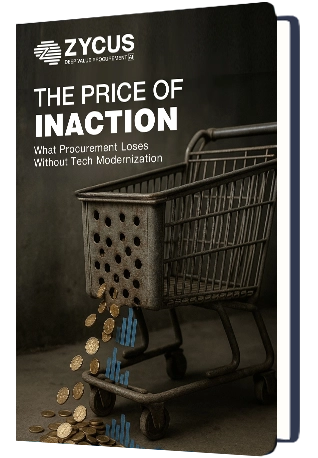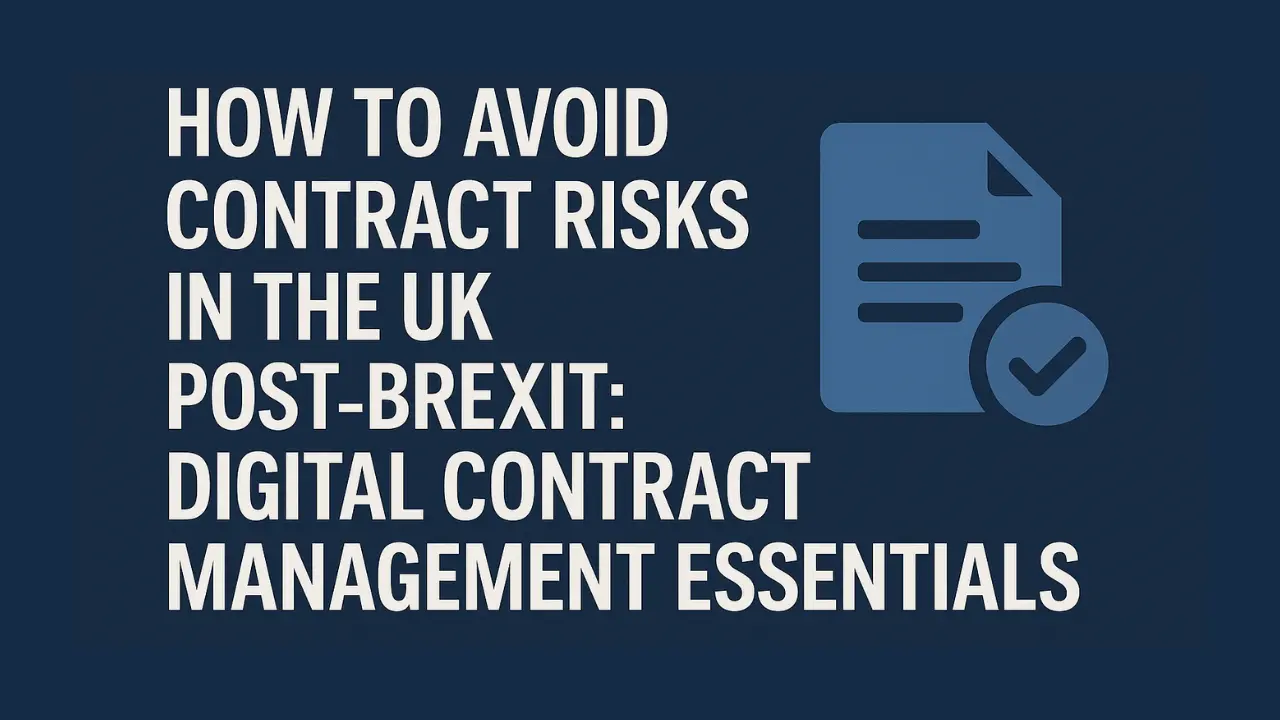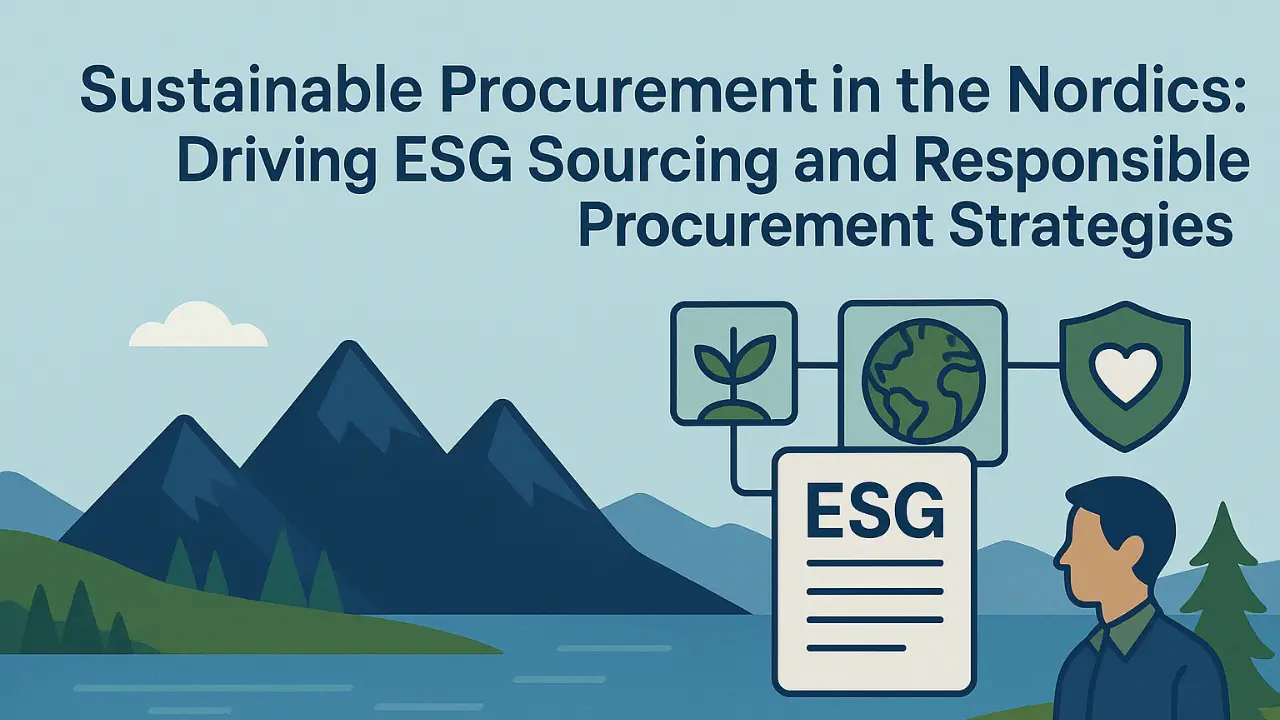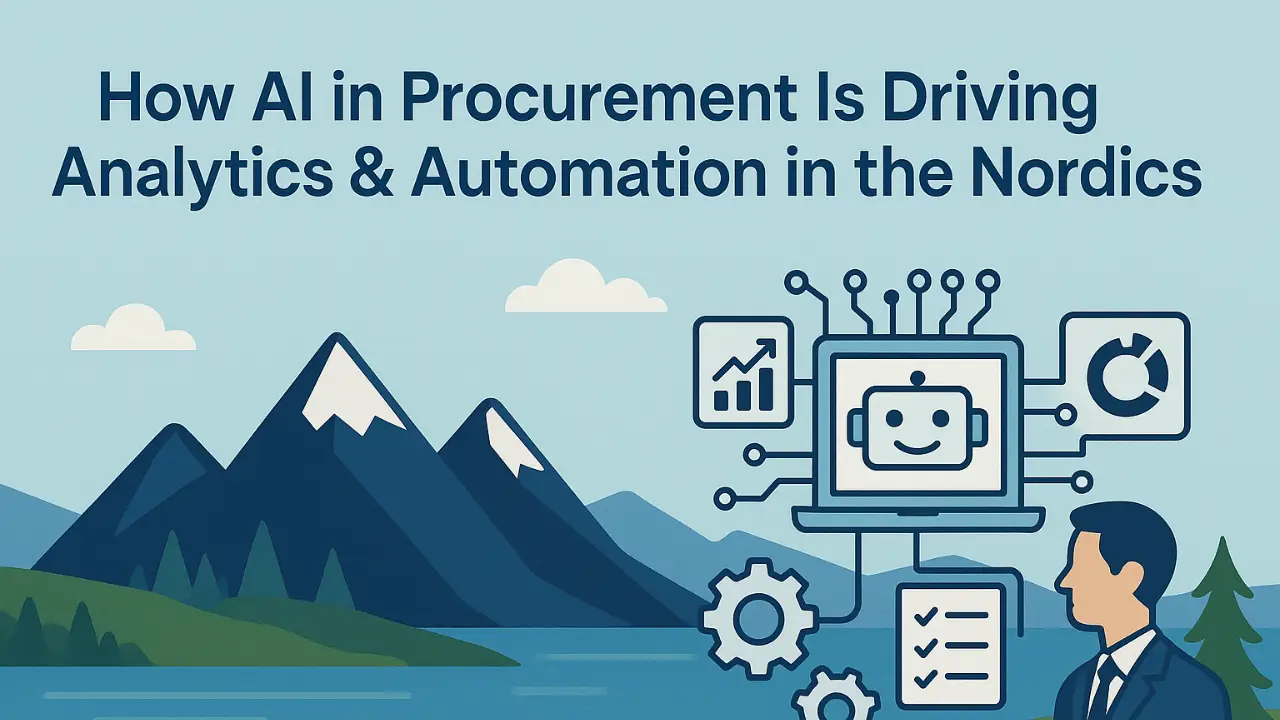TL;DR
- Contract Risk Management UK Post-Brexit: UK businesses face challenges like regulatory changes, supply chain disruptions, currency fluctuations, and workforce mobility issues.
- Digital Contract Management is Essential: Tools automate workflows, centralize contract storage, and monitor compliance in real-time to reduce legal and operational risks.
- Strengthen Post-Brexit Procurement Strategies: Adopt supplier risk management, include Brexit-specific contract clauses, and ensure teams stay updated on evolving UK laws.
- Leverage AI and Analytics: AI-driven tools help predict risks, flag compliance gaps, and enable smarter, faster contract decisions.
- Best Practices for Success: Engage all stakeholders, choose scalable solutions, conduct regular audits, and ensure GDPR compliance in digital systems.
- Zycus Empowers UK Enterprises: Zycus’ digital contract management solutions help UK businesses navigate post-Brexit complexities with confidence and efficiency.
Introduction
The UK’s exit from the European Union (Brexit) has reshaped many aspects of business operations, particularly in contract management. As a result, companies must reevaluate their approach to contract risk in the UK to ensure compliance and mitigate risks. In this post, we will explore how businesses can navigate post-Brexit contract management with a focus on digital contract management tools, the evolving regulatory landscape, and the strategies needed to minimize potential legal risks.
In the post-Brexit era, the landscape of contract management has become more complex due to legal and regulatory changes. However, adopting digital contract management tools can significantly reduce contract risks in the UK. Below, we delve into the key risks and how businesses can adopt digital solutions to ensure they are compliant and prepared for any challenges post-Brexit.
Read more: Transforming Public Procurement: UK Procurement Act 2023 and Its 2025 Rollout
What Are the Key Challenges in Contract Risk Management UK Post-Brexit?
The shift in the UK’s relationship with the EU has given rise to various risks associated with contracts, particularly those involving EU counterparts. Below are some of the critical contract risks in the UK that businesses must contend with:
1. Regulatory Compliance Risks:
- Legal Framework Changes: With the UK no longer bound by EU regulations, businesses must adapt to new local laws. These laws affect everything from customs duties to labor laws, impacting cross-border contracts.
- Data Protection: The UK’s departure from the EU meant that businesses had to ensure that their data protection practices aligned with UK GDPR rather than EU GDPR.
2. Supply Chain Risks:
- Customs and Tariffs: Post-Brexit, the imposition of customs checks and tariffs on goods moving between the UK and the EU can affect contracts that involve the supply of goods.
- Delays and Disruptions: The unpredictability of supply chain issues, caused by new customs procedures, can impact delivery timelines and lead to contract disputes.
3. Currency Fluctuations:
The uncertainty surrounding the UK’s post-Brexit economic environment has led to fluctuations in the pound, which can affect the terms of contracts, particularly those involving international payments.
4. Workforce Mobility:
The free movement of workers between the UK and the EU no longer applies, which may disrupt employment-related contracts, particularly for industries that relied on talent from the EU.
How Digital Contract Management Supports Contract Risk Management UK
With the growing complexity of managing contracts in the post-Brexit environment, leveraging digital contract management tools becomes a vital strategy for businesses. Here’s how they can help mitigate Brexit impact on UK contracts:
Automated Contract Workflows:
- Reduced Manual Errors: By automating processes such as contract creation, approval, and renewal, businesses reduce the likelihood of human errors and ensure that contracts comply with the latest regulations.
- Faster Approvals: Automated workflows speed up the approval process, enabling businesses to react faster to changing laws or supply chain disruptions.
Centralized Contract Repository:
- Digital platforms enable businesses to store contracts in a centralized, searchable repository. This centralization makes it easier to locate specific contracts and ensure that all agreements are up-to-date and compliant with current laws.
Real-Time Compliance Monitoring:
- Digital contract management tools help businesses stay informed of changing regulations. They provide real-time updates on compliance, ensuring that companies are aware of any legal changes that may impact their existing contracts, such as adjustments to customs tariffs or labor laws.
Collaboration Features:
- With integrated collaboration tools, stakeholders can work together more efficiently, improving transparency in contract negotiations and ensuring that all legal requirements are met before signing an agreement.
The Role of Post-Brexit Procurement Strategy in Contract Risk Management UK
The post-Brexit landscape requires businesses to revisit their procurement strategies to address new challenges. A post-Brexit procurement strategy in the UK that incorporates digital contract management is crucial for ensuring that contracts are risk-proofed and compliant with new regulations.
Here are some strategies businesses can adopt:
- Understanding New Regulatory Requirements: The new legal framework for trade, taxes, and employment law necessitates that businesses review all existing contracts for compliance. Digital tools can help businesses track these changes and quickly adapt their procurement strategies.
- Supplier Risk Management: In the post-Brexit world, supplier relationships are more critical than ever. Businesses should assess their suppliers’ ability to adapt to changing customs regulations, tariffs, and other Brexit-related challenges. Digital contract management tools can help businesses keep track of supplier performance and risk profiles.
- Risk-Based Contract Clauses: Including clauses that address potential Brexit-related disruptions, such as force majeure or price escalation clauses, can help mitigate risks. A digital contract repository makes it easier to implement these clauses across all contracts and ensures consistency.
- Regular Training and Updates: Companies must continuously educate their teams on post-Brexit laws. Digital solutions with built-in training modules can help procurement teams stay updated on the latest regulations and compliance measures.
How Digital Solutions Address Specific Brexit-Related Contract Risks
| Risk Area | Digital Contract Management Solution | Benefits |
| Regulatory Compliance | Real-time updates on regulatory changes and automated alerts | Keeps contracts compliant with evolving laws |
| Supply Chain Disruptions | Centralized contract repository with supply chain visibility | Reduces risks related to delays, customs, and tariffs |
| Currency Fluctuations | Integration with financial systems for automatic currency updates | Helps in pricing adjustments based on currency fluctuations |
| Workforce Mobility | Digital signatures and easy contract amendments | Ensures compliance with changing labor mobility laws |
Best Practices for Contract Risk Management UK Using Digital Tools
To make the most of digital contract management in the UK, businesses should follow best practices that enhance efficiency, reduce risk, and stay compliant:
- Ensure All Stakeholders Are Involved: Involving legal, procurement, and IT departments in the selection of contract management software ensures that the chosen tool meets the company’s compliance and workflow needs.
- Select a Scalable Solution: Choose a contract management platform that can scale with the business as it grows and adapts to future changes in the regulatory environment.
- Regular Audits and Reviews: Regular audits of existing contracts ensure that companies remain compliant with the latest laws. Digital tools often feature auditing capabilities, making it easier to track compliance.
- Data Security and GDPR Compliance: Given the importance of data security post-Brexit, ensure that your digital contract management system complies with UK GDPR regulations.
- Leverage AI and Analytics: Incorporating AI-driven contract analytics can provide insights into potential risks and compliance gaps, enabling businesses to act proactively.
Why Zycus Leads in Digital Contract Risk Management UK
Navigating contract risks in the UK in the post-Brexit environment requires businesses to adapt and leverage digital tools. By adopting digital contract management solutions, companies can better manage compliance, streamline workflows, and mitigate risks associated with regulatory changes, supply chain disruptions, and currency fluctuations. A well-structured post-Brexit procurement strategy in the UK, backed by the right digital tools, will ensure that your business is positioned for success in the evolving market.
By proactively implementing these strategies and solutions, businesses can safeguard their operations from the challenges posed by Brexit while improving their overall contract management efficiency.
FAQs
Q1. What are the main contract risks for UK businesses after Brexit?
Post-Brexit, UK companies face multiple contract risks including regulatory changes, supply chain disruptions, currency fluctuations, and workforce mobility challenges. These risks affect cross-border contracts, pricing, delivery timelines, and compliance obligations, making proactive contract risk management essential.
Q2. Why is Contract Risk Management in the UK more complex post-Brexit?
Brexit introduced new trade rules, customs procedures, and data protection laws. Businesses are now governed by UK-specific legislation instead of EU frameworks. This fragmentation increases the complexity of managing international contracts and maintaining compliance across multiple jurisdictions.
Q3. How can digital contract management tools help UK companies manage Brexit-related risks?
Digital contract management solutions automate contract creation, approval, and renewal while offering real-time compliance tracking. They centralize contract data, monitor regulatory changes, and ensure all agreements meet the latest UK legal standards, reducing the likelihood of costly non-compliance.
Q4. What features should UK businesses look for in digital contract management software?
Key features include:
- Automated workflows and approval processes
- Centralized, searchable contract repositories
- Real-time compliance and audit tracking
- AI-powered analytics for risk prediction
- Integration with financial and procurement systems
- Support for UK GDPR and data security compliance
Q5. How does AI help with Contract Risk Management UK Post-Brexit?
AI-driven tools analyze large volumes of contract data to detect potential risks, flag compliance gaps, and forecast the impact of regulatory changes. They help legal and procurement teams make faster, data-backed decisions while reducing manual oversight.
Q6. How can companies ensure regulatory compliance in UK contracts post-Brexit?
Organizations should:
- Regularly review contracts for compliance with UK laws and updated trade regulations.
- Use digital systems with real-time compliance alerts.
- Include Brexit-specific clauses addressing force majeure, tariffs, and mobility.
- Conduct periodic audits using AI-powered analytics tools.
Q7. What are the best practices for managing contract risks in post-Brexit UK?
- Involve all stakeholders (legal, procurement, and finance) in contract reviews.
- Choose scalable and secure contract management software.
- Embed risk-based clauses to handle disruptions and currency volatility.
- Ensure GDPR compliance and data protection across systems.
- Schedule regular audits and team training sessions on UK regulations.
Q8. How do currency fluctuations impact UK contracts after Brexit?
Currency volatility affects contract pricing, payment terms, and profit margins. Digital contract management tools that integrate with financial systems can automatically update exchange rates and help businesses renegotiate or adjust contract terms based on market conditions.
Q9. Why is data protection a major concern for UK businesses post-Brexit?
With the UK no longer under EU GDPR, companies must comply with UK GDPR and maintain appropriate data-transfer mechanisms. Digital contract management solutions ensure that sensitive data is stored securely, encrypted, and compliant with both domestic and international standards.
Q10. How does Zycus support Contract Risk Management in the UK?
Zycus provides AI-enabled digital contract management solutions that help UK businesses automate workflows, track compliance in real time, and mitigate post-Brexit risks. Its tools enhance visibility, improve accuracy, and empower organizations to manage complex regulatory and contractual obligations confidently.
Q11. What industries benefit most from digital contract management in the post-Brexit UK?
Industries such as manufacturing, logistics, finance, retail, and professional services benefit most. These sectors face complex supply chain relationships, multiple trading partners, and frequent regulatory changes that make digital automation crucial.
Q12. How can organizations future-proof their contract management strategies?
Companies can future-proof by adopting flexible digital systems, leveraging AI for predictive analytics, maintaining regulatory awareness, and continuously training teams. A strong digital-first procurement and contract strategy ensures agility and resilience in a changing business environment.
Related Reads –
- From Insights to Actions: Unlocking Deep Value with AI Agents in Procurement
- CPO E-Procurement Checklist for Belgium: A Guide to Compliance, Automation, and Strategic Transformation
- 2025 Purchase-to-Pay (P2P) Trends & Insights: Key Challenges, Automation, and AI-Driven Strategies
- Procurement Fails You’ll Recognize – And Fixes You’ll Want to Steal































































